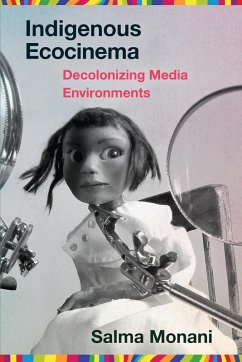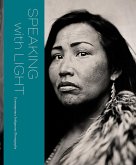Introducing the concepts of d-ecocinema and d-ecocinema criticism, Monani expands the purview of ecocinema studies and not only brings attention to a thriving Indigenous cinema archive but also argues for a methodological approach that ushers Indigenous intellectual voices front and center in how we theorize this archive. Its case-study focus on Canada, particularly the work emanating from the imagineNATIVE Film + Media Arts Festival in Toronto--a nationally and internationally recognized hub in Indigenous cinema networks--provides insights into pan-Indigenous and Nation-specific contexts of Indigenous ecocinema. This absorbing text is the first book-length exploration foregrounding the environmental dimensions of cinema made by Indigenous peoples, including a particularly fascinating discussion on how Indigenous cinema's ecological entanglements are a crucial and complementary aspect of its agenda of decolonialism.
Hinweis: Dieser Artikel kann nur an eine deutsche Lieferadresse ausgeliefert werden.
Hinweis: Dieser Artikel kann nur an eine deutsche Lieferadresse ausgeliefert werden.








